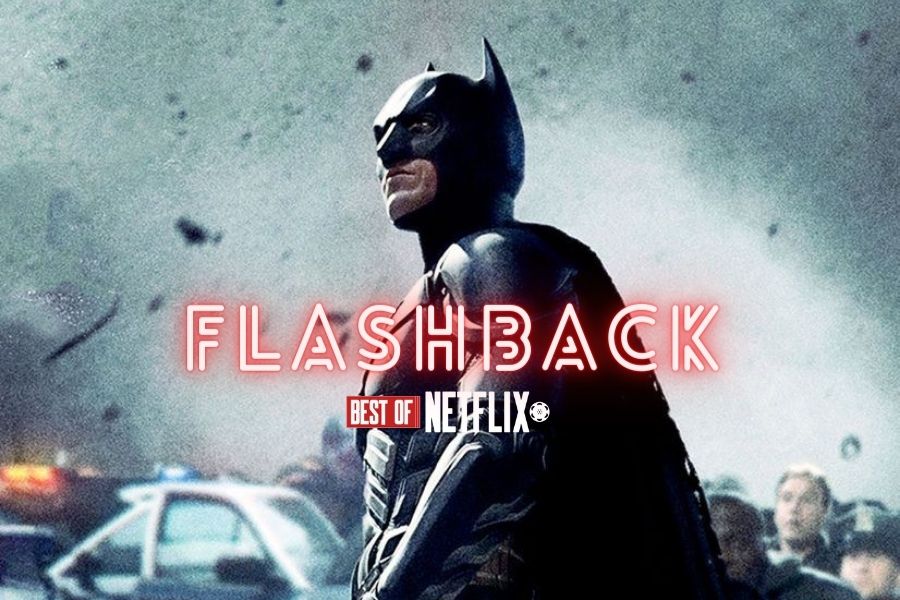Forget Robert Pattinson, forget Michael Keaton, George Clooney and everybody in between, there is no doubt that Christian Bale as the Dark Knight, AKA Batman, is the archetypal portrayal of the shadowy superhero. Dark, gritty and ultraviolent, the original movie not only sparked a trilogy of Christopher Nolan-directed films but changed superhero movies as we know them today. However, we’d wager, using our Netflix Flashback eyes, that the final instalment of the trilogy is by far the best.
No, your eyes are not deceiving you. Christopher Nolan’s lushly produced, action-heavy effort The Dark Knight Rises is much better than you remember it as, bringing a palpable sense of closure to a trilogy that helped revitalise interest in comic book movies, less than a decade after studios dictated that they were meant as cheap fast food cash-ins. That Nolan’s final film in the Batman universe is also his most sophisticated and even-handed as an action director makes it doubly important, but the set pieces – frequently dazzling, particularly the opening stunt set in the sky, purportedly inspired by Licence to Kill – never come in the way of the story, or the acting in question.
The Dark Knight Rises proves one thing straight away: If you put an intelligent director to steer an action story steeped in Dickensian lore, you’re going to get a film that looks stunning on the big screen. In some ways, it’s a more exciting viewing than the more grounded The Dark Knight, and it’s certainly a superior effort to Batman Begins, where the director clumsily went from set piece to set piece, unsure of how to mingle the story and spectacle into one whole. It helps that Nolan had just completed the deeply ambitious Inception, a film that boasted an all-star ensemble seated in a labyrinthian story, that spanned decades, geography and personal philosophies.
With The Dark Knight Rises, Nolan portrays Bruce Wayne (Christian Bale) as a man broken by his past failures, as he recognises that the only way he can redeem himself is to leave his life in Gotham behind. Wayne’s foe, Bane (played with delicious glee by Tom Hardy), is calculating, singular, and gifted with an ability to see in the darkness, robbing Batman of his only aid. The battleground is an American complex of glamour and intrigue, capturing moody, expressive shots of a city under physical and intellectual attack. The film’s sense of geography is incredible, outlining the streets that stand as the battleground for a city under threat by a nefarious gang of terrorists.
As Wayne readies himself to engage with Bane, he begins losing control of his basic communication with Alfred (Michael Caine), the sturdy butler who has acted as counsel and parent for the orphan throughout his life. Caine lifts the film from the region of action thriller by way of a tender monologue, as he reminds his master of the memories they have shared together. Caine is barely in the film – it’s really a cameo more than anything – but his presence has great pathos, particularly at the end, when he feels that he has let the Wayne family down once more.
Nolan, who used mood aplenty in the excellent The Dark Knight, makes a bold choice in the middle of the film, removing Wayne from the central action, as he watches his city fall apart on a television screen that hangs just above his prison cell. The Dark Knight Rises spills absence of feeling (embellished by Hans Zimmer’s explosive score), curating a montage where Wayne attempts to escape the prison cell by climbing out. When he finally escapes, the euphoria is triumphant, and the film makes great efforts to showcase that Wayne is Batman, with or without the mask.
Bale and Hardy are committed to their personal crusades, and they both deviate from solemn to soulful in strikingly different ways (Hardy’s world-weary monster is an invention of astonishing research), and although they only have a handful of scenes together, the moments are icy and laced with jagged danger. And the impressive supporting cast – including an appropriately snappy Anne Hathaway – fills the missing spaces nicely, with contrast and contradiction. True, the film is overlong and it really could have done with some splicing during the opening hour, but the finished picture is done with tremendous splendour, every shot designed for the big picture experience, proving that it deserves its place in the complexes.
More impressively, the film closes out the themes the trilogy built up, bringing the central characters to their intended destination, and makes Batman Begins a more impactful film by mimicking some of the beats of the first picture. “I’m just being honest with people when I say we never intended to make a trilogy,” Nolan recalled. “What I’m being honest about is we never sat down and wrote a trilogy. Because I feel that to do it that way, you would be limiting the possibilities. What I wanted to do was live the trilogy with the characters, grow them, and take the time to develop the thing over years from the inside. I talk about his writing from the inside — we’re changing and growing with the characters and the world is changing with the characters.”
Like many good things in life, The Dark Knight Rises was the product of a happy accident, but there’s nothing accidental about this happy picture. It’s simply glorious.
Watch The Dark Knight Rises on Netflix.
